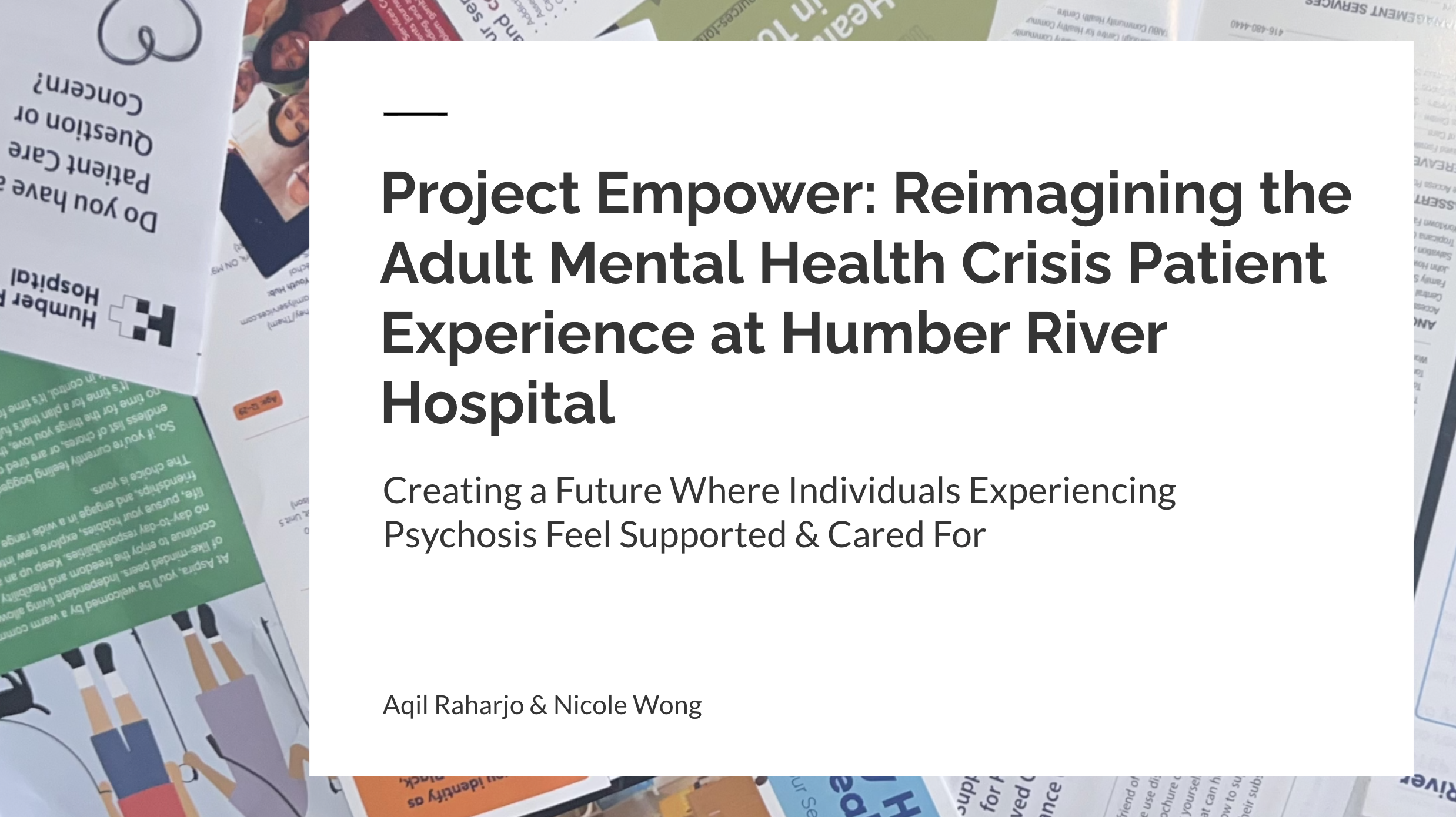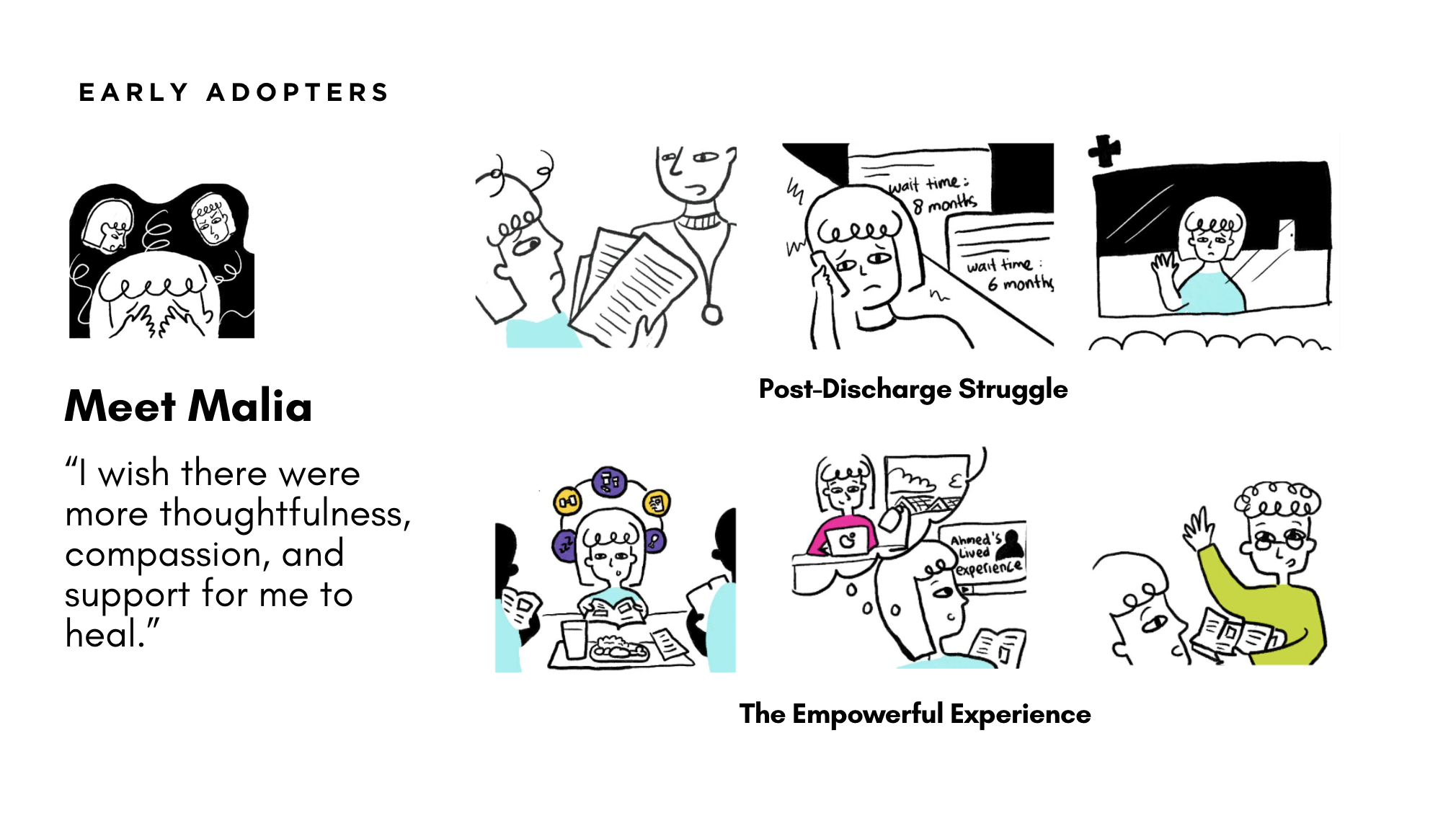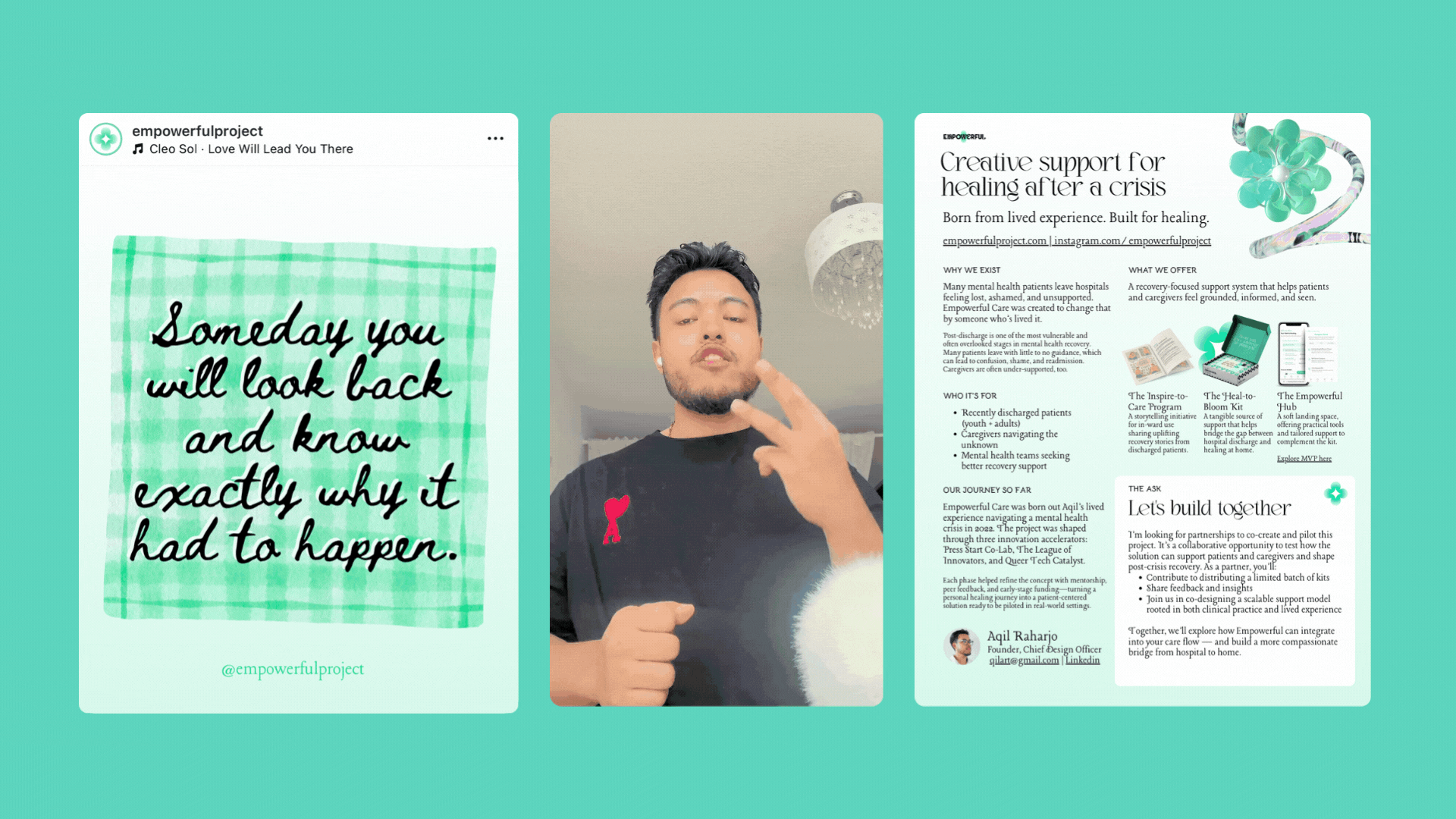Design Initiative | 8 Months | 2024-5
How can we empower mental illness survivors with better post-crisis support?
Individuals experiencing psychosis often face traumatic interventions, poor in-patient care, and hard-to-navigate post-discharge support. This is particularly distressing during a first hospitalization, which can be terrifying and confusing for both patients and families. The lack of proper education and support at this critical time reduces motivation to engage in recovery, leading to repeated hospitalizations and worsened outcomes.
Through Empowerful, Aqil applied service design thinking to explore how post-crisis recovery could be improved. He co-developed prototypes for care kits and digital tools aimed at bridging gaps between hospitals, patients, and caregivers. Immersed in the health-tech and entrepreneurship ecosystem, he collaborated with clinicians, patients, and innovation partners to test concepts, validate needs, and understand what it takes to bring human-centered solutions into real healthcare systems.
As Featured on Financial Post, The League of Innovators, QueerTech, Humber River Health Foundation
☝🏼Click to Watch Empowerful’s 4-minutes pitch

The Approach
Lived Experience Meets Innovation Incubator
As one of 50 innovators selected for the Press Start Co-Lab Innovation Accelerator, Aqil tackled a critical gap in mental health care: the lack of meaningful post-discharge support for outpatients at Humber River Hospital. Using design thinking and AI-enabled journey mapping, he reframed the problem through both research and lived experience—recognizing that recovery doesn’t end at discharge; it begins there.
He led qualitative research with patients and social workers, uncovering a system optimized for stabilization rather than sustained motivation or belonging. Hospitals were focused on symptoms, not reintegration. Through insight synthesis, Aqil identified a key opportunity: patients lose purpose and engagement due to the “long hours of nothingess in acute care”, inaccessible resources, and a lack of guidance after discharge.
This became the foundation for Empowerful Care, a design-led, grant-winning initiative focused on restoring hope where the system stops short.
☝🏼 Click to view the grant-winning proposal
The Impact
A Reimagined Support System
As Aqil reached clarity into the root cause and core challenges, he concluded that the solution should aim to inspire in-ward patients, ease their transition to getting into outpatient programs, and engage them with culturally-relevant and meaningful post-discharge support.
Nicole Wong, Psychiatry Resident & Education Chief at McMaster University, joined forces, providing a perspective in building support materials. Together, they envisioned a story-driven, step-by-step system that integrates into hospital care to empower patients with tools and information for a smoother healing journey. In total, they involved seven mental health advocates and four psychiatrists to co-design the solutions.
To refine the idea further, Aqil joined several more innovation accelerator programs (League of Innovators Labs and QueerTech Qatalyst). Through mentorship and co-creation, he strengthened the project’s business model and its potential for impact within the healthcare system.
“The elements of your scoped intervention here are compelling and in my opinion exceed many of the care experiences I’ve heard over the years.”
— Jonny Morris, CEO, CMHA BC
“These interventions are something we should do more of. We need more of this type of innovation. Would be super helpful for patients to have hope. Patients will have more appreciation for having peer support.”
— Dr. Jonathan H., Psychiatrist
Reflection
“Building this venture taught me how deeply complex and necessary innovation in mental health can be. While I learned that navigating regulatory systems and institutional partnerships requires a longer runway than anticipated, I’m grateful for the journey. The process opened doors to meaningful collaborations, mentors, and a network of people equally committed to making mental health care more human, accessible, and hopeful.”














